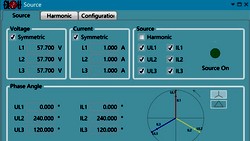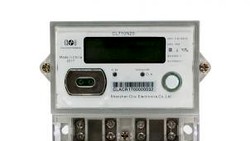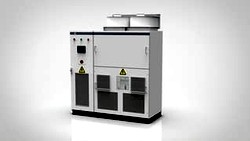Opinion Piece
The development of large-scale wind energy projects provides communities with economic opportunities but also introduces impacts that must be addressed through open communication and cooperative planning. As the wind industry continues to grow at a rapid pace across Europe, North America and other parts of the world, navigating the complex relationship between developers and local stakeholders is an ongoing challenge driven by both technological advancement and a commitment to responsible growth.
In Germany, there's a big discussion about using more renewable energy and making sure local people's rights and worries are considered. It's a small example of the larger debate on how to develop sustainably.
By their very nature, utility-scale wind farms require vast land areas to maximize clean energy generation through economies of scale. However, incorporating these industrial facilities into predominantly rural locales introduces changes that alter landscapes and lifestyles. Chief among valid local concerns are issues relating to environmental effects such as those on wildlife, as well as how sweeping turbine installations may impact scenic views and property values. Certainly not every resident welcomes the disruption that accompanies erecting hundreds of towering structures.

(symbol image, credit CLOU)
Yet wind power also brings fiscal benefits that can revitalize cash-strapped communities and fill local coffers in the form of tax payments and employment opportunities. Project developers recognize their responsibility to offset costs by sustaining goodwill, as unfavorable public opinion can hinder or outright block initiatives no matter their economic or ecological merits. As such, the establishment of community benefits packages has become an vital strategy for balancing wind's rewards with its drawbacks according to each region's unique needs and priorities.
Community benefits, also sometimes called community contribution or community reinvestment programs, entail negotiated agreements providing designated financial support or other resources to municipalities affected by a given development. Funding may go toward various community-nominated programs, local infrastructure upgrades, emergency services, education, job training circuits, and more.
For example, some companies operating large wind farms have established a benefits fund allotting several million Euro annually to the surrounding county. This supports improvements to roads, schools, fire stations, and broadband internet access that directly enhance quality of life. Meanwhile, millions more are generated via property taxes and land-lease payments to participating landowners. Local investment represents a shared stake in a project's long-term viability while offsetting its visible footprint.
Quantifying nature and wildlife effects continues to evolve alongside monitoring technologies like acoustical sensors and wildlife tracking systems. Studies have shown that when best practices are followed during siting and construction, many species readily adapt to the spinning turbines which account for a small fraction of avian and bat mortality compared to issues like windows, vehicle strikes, and domestic cats.
Ongoing innovation also drives down environmental consequences – for instance, the shift toward larger rotor blades means fewer towers are necessary to produce the same output.
On the scenic side, advances in camouflage techniques help turbines blend unobtrusively into landscapes, meanwhile distance setbacks are refined according to each ecosystem's particular features. As for property values, comprehensive studies find no conclusive evidence that nearby homes suffer depreciation so long as open discourse keeps communities informed. Where minor impacts do emerge, benefits packages can offset them while further bolstering public support through volunteerism and need-based assistance.
With commitment to long-term stewardship, community benefits serve wind's expansion responsibly by supporting balanced growth that uplifts all stakeholders rather than dividing them. As collaboration strengthens between utilities, regulators, developers, and citizens, impediments transform into shared advantages. Regional needs also motivate engineers to intensify clean power's returns through higher capacity designs tailored for low-wind areas. Ultimately, facing concerns head-on through policies of mutual understanding and compensation will sustain this vital industry's capacity to deliver benefits of many kinds at ever-larger scale.
Takeaway
Wisely implemented community benefits programs demonstrate how wind energy's burdens can become community assets through cooperative prioritization of local welfare alongside energy production. While challenges persist, addressing them openly and proactively through techniques like strategic land management, conservation offsets and local reinvestment lays a foundation for maximizing wind power's acceptance and contributions.
Harnessing the power of wind is more than just a technical endeavour; it's about integrating energy solutions into the fabric of our communities. Our energy storage systems at CLOU offer a bridge between the natural force of the wind and the daily needs of our society. By implementing community benefits programs, utilities demonstrate that the challenges of wind energy are not insurmountable but rather opportunities to enhance local welfare while generating clean power.
If you have questions related to our energy storage- or microgrid solutions, please do not hesitate to reach out to us. We are here to assist you and welcome your valuable thoughts and comments.
Until then, keep your turbines turning and your ideas flowing like a refreshing breeze on a clear day!







All comments are moderated before being published. Inappropriate or off-topic comments may not be approved.